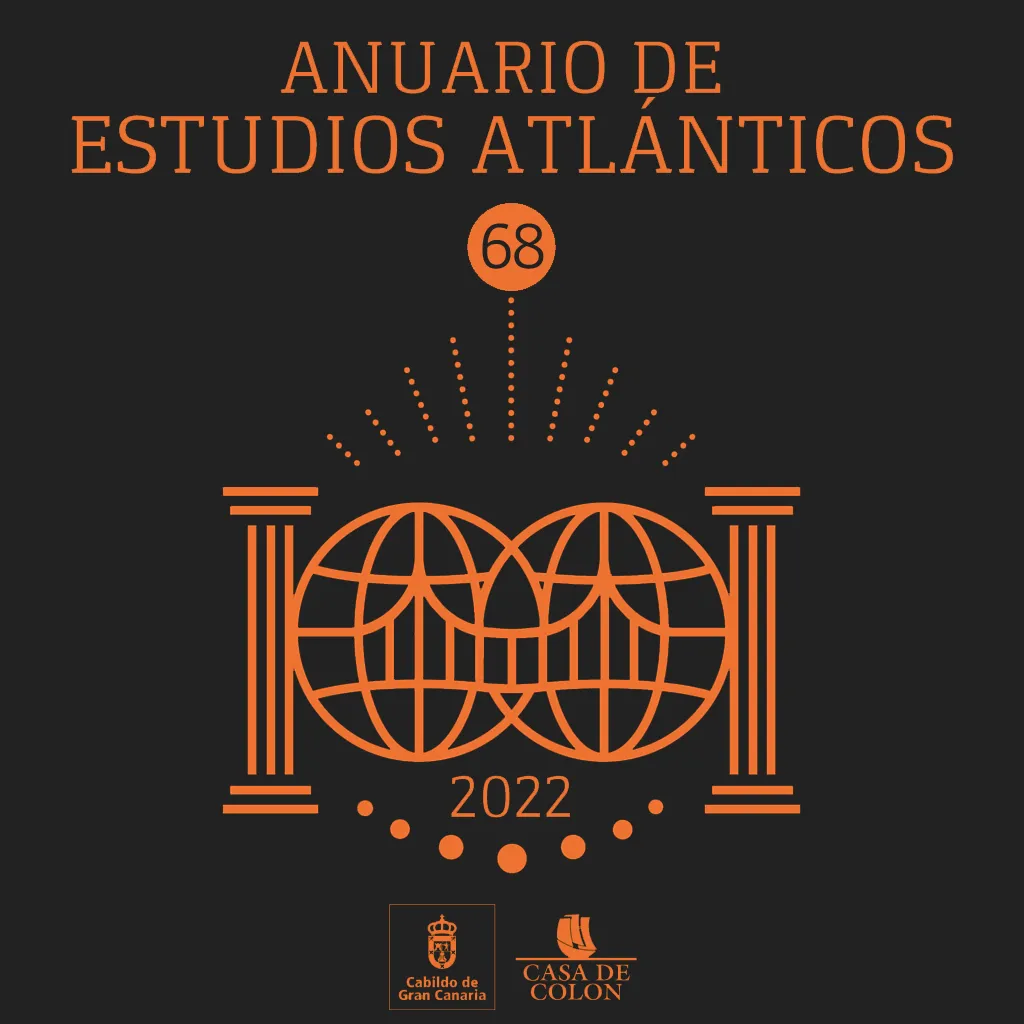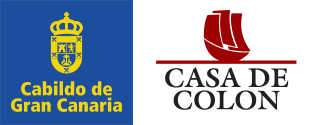Al-?uzur al-??lid?t al-musamm?t al-??n bi-qan?riya (Las Islas eternas conocidas ahora como Qan?riya): La mención a Canarias de A?mad ibn Q?sim al-?a?ar? (Hornachos, ca. 1570 –Túnez, después de 1642) / Al-?uzur al-??lid?t al-musamm?t al-??n bi-qan?riya
Palabras clave:
Al-?az?’ir al-??lid?t (islas eternas), al-?uzur al-??lid?t (islas eternas), ?az?’ir al-sa??da (islas de la felicidad), fr?n??š (fur?un??aš, afortunadas), topónimo Canaria (qan?riya) en fuentes árabes pre-modernas, A?mad ibn Q?sim al-?a?ar?, moriscos, Al-?az?’ir al-??lid?t (Eternal Islands), al-?uzur al-??lid?t (Eternal Islands), ?az?’ir al-sa??da (Islands of Happiness), fr?n??š (fur?un??aš, Fortunates), Canaria (qan?riya) place name in premodern Arabic sourcesResumen
Algunas fuentes árabes (siglos III H. /IX J. C. –XI H. /XVII J. C.) mencionan unas islas situadas en el océano (uqiy?nus o al-ba?r al-mu???, es decir, el Atlántico) con el nombre al-?az?’ir al-??lid?t (islas eternas), al-?uzur al-??lid?t (también islas eternas), ?az?’ir al-sa??da (islas de la felicidad) y/o fr?n??š (fur?un??aš, afortunadas). Se presenta el texto árabe donde se documenta (quizás por primera vez en una fuente árabe) el topónimo Canaria (qan?riya) identificado con las al-?uzur al-??lid?t (islas eternas), localizado en una autobiografía del siglo XI H. /XVII J. C., el Kit?b N??ir al-d?n ?al? l-qawm al-k?fir?n wa-huwa al-sayf al-ašhar ?al? kull man kafar (El defensor de la religión contra los incrédulos: la más poderosa espada contra todo aquel que no cree), del morisco A?mad ibn Q?sim al-?a?ar?. Se concluye que estamos ante la identificación del antiguo mito griego de las Makáron nêsoi (islas de los bienaventurados), tras su largo recorrido mental y textual a través del latín y del árabe, con el topónimo Canaria, que nuestro autor conoció como Qan?riya. / Some Arabic sources (3rd H. / 9th J. C. – 11th H. / 17th J. C. centuries) mention a group of islands located in the Ocean (uqiy?nus or al-ba?r al-mu???, that is, the Atlantic) with the name al-?az?'ir al-??lid?t (Eternal Islands), al-?uzur al-??lid?t (Eternal Islands), ?az?'ir al-sa??da (Islands of Happiness) and/or fr?n??š (fur?un??aš, Fortunates). In this article, we present the Arabic text where the toponym Canaria (qan?riya), here identified with the al-?uzur al-??lid?t (Eternal Islands), is documented perhaps for the first time in an Arabic source. The text is localized in an autobiography of the 11th H. / 17th J. C. century entitled Kit?b N??ir al-d?n ?al? l-qawm al-k?fir?n wa-huwa al-sayf al-ašhar ?al? kull man kafar (The defender of religion against unbelievers: The most powerful sword against all who do not believe), whose author is the Morisco A?mad ibn Q?sim al-?a?ar?. We conclude that this text shows the identification of the ancient Greek myth of the Makáron nêsoi (Islands of the Blessed), after a long mental and textual journey throughout Latin and Arabic, with the place name Canaria, which the author knew as Qan?riya.











